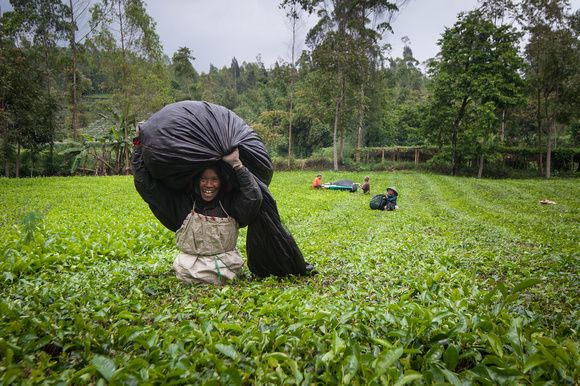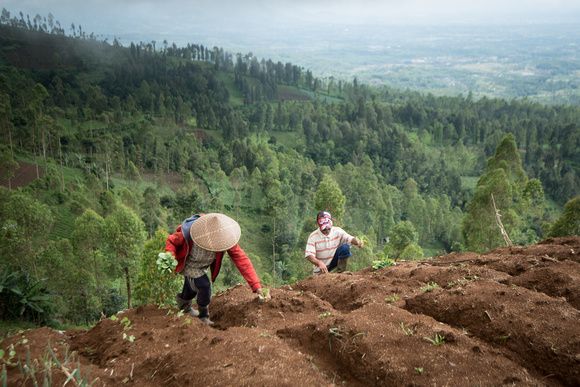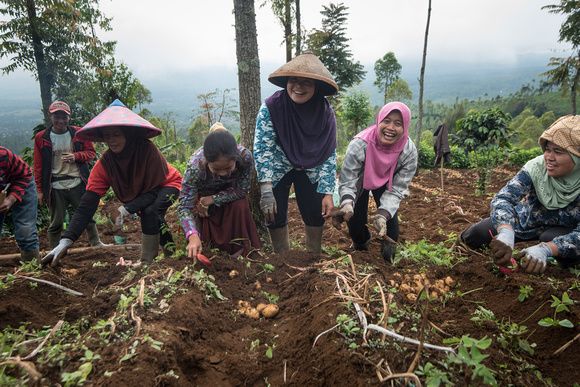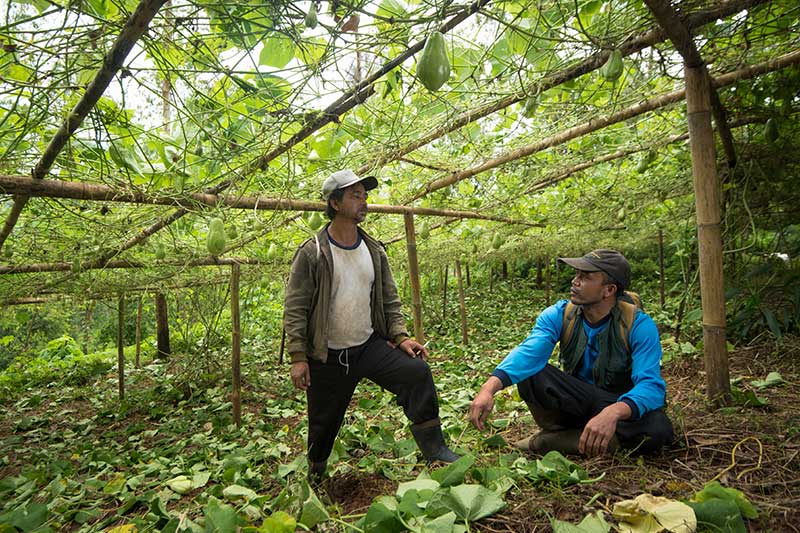Farmed landscapes
Island of Java is home to 60% of Indonesia’s population but only has 10% of its natural forest left. This means that the native animals have to adapt to living in farmed habitats too. Anna Nekaris, our Conservation Partner, and her team are working to ensure that these farmed landscapes are suitable for slow lorises and other creatures that depend on them.
Local communities rely on producing both subsistence and cash crops. So Anna is helping the local people produce organic coffee in a way that helps them and the threatened species that they co-exist with, particularly the lorises, Javan palm civets and small Indian civets.
Anna is helping the local people produce organic coffee in a way that helps them and the threatened species that they co-exist with
Loris and farmer working together
Lorises are important for the farmers because they pollinate coffee shade plants and feed on larval and insect pests. The civets are important coffee seed dispersers and they feed on understory rodent pests.
The team is ideally placed to set up wildlife friendly coffee production in forest gardens. This will bring economic security to the local people whilst protecting the biodiversity of the forests. Growing one crop in isolation is never beneficial for wildlife. It can often end up being costly for farmers if that crop fails. The team is planning to integrate fruit-bearing shade trees and understory fruit and vegetable crops within the coffee farms.
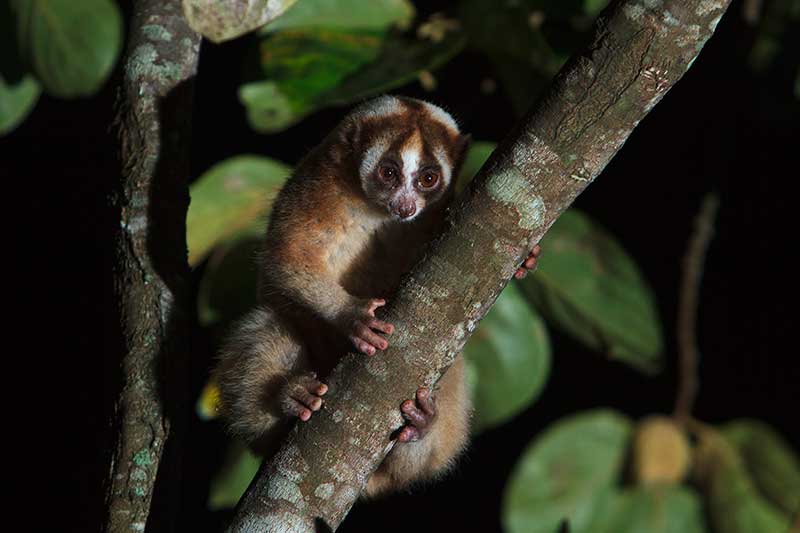
Loris on pest control duty
The early stages of the project will assess how important lorises and civets are in controlling pests, pollinating plants and dispersing seeds. With this information about how much economically viable organic wildlife friendly coffee is, it is hoped that the idea will become popular and other communities will adopt the practices.
There are already 25 organic farmers in the region who are keen to get involved. They will test pest-control methods as well as organic fertilisers and herbicides. In order for this project to work, the team needs to get the majority of local farmers to sign up. They need to work together as a community. With that in mind, the team is holding community meetings to explain the plans, discuss issues of conflict and set expectations for the farmers.

